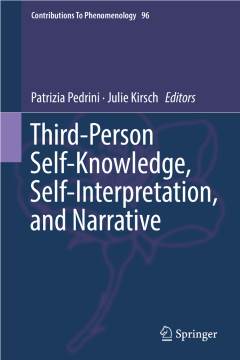Repository | Book | Chapter

(2018) Third-person self-knowledge, self-interpretation, and narrative, Dordrecht, Springer.
Self-interpretation as software
toward a new understanding of why false self-conceptions persist
Tadeusz Zawidzki
pp. 115-144
Typically, action-relevant, false beliefs do not persist. Human beings with false beliefs about how to secure food, social partners, and physical security do not succeed at these tasks as well as human beings with true beliefs about them. For this reason, mechanisms operating at phylogenetic, ontogenetic, and cultural scales weed out such false beliefs. However, there is voluminous empirical evidence, gathered over many decades, that many highly persistent self-conceptions are false. In this paper, I propose a solution to this apparent puzzle. Rather than evaluating self-directed beliefs for truth, I argue that we should evaluate them in the way we evaluate computer software. Software is not evaluated in terms of the degree to which it truly describes the workings of the computer that runs it. Instead, software is evaluated in terms of the costs and benefits of what it gets the computer that runs it to do. Similarly, I argue that we can understand the persistence of false self-conceptions only if we evaluate them in terms of the costs and benefits of what they get human beings to do, instead of how well they describe the workings of human cognition. This perspective is inspired by Dennett's notion of "cognitive tools", but it departs from Dennett in defending a socialized version of this notion. Rather than tools for improving individual cognition, self-conceptions are tools for interacting with others.
Publication details
DOI: 10.1007/978-3-319-98646-3_7
Full citation:
Zawidzki, T. (2018)., Self-interpretation as software: toward a new understanding of why false self-conceptions persist, in P. Pedrini & J. Kirsch (eds.), Third-person self-knowledge, self-interpretation, and narrative, Dordrecht, Springer, pp. 115-144.
This document is unfortunately not available for download at the moment.



